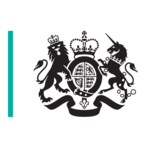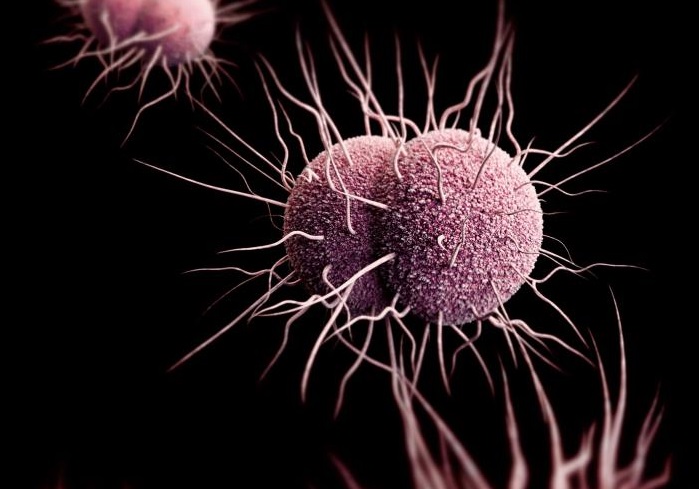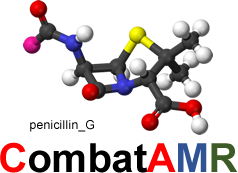Welcome to CombatAMR’s blogosphere, a selected list pointing to useful, interesting and challenging blogs providing some valuable information and commentary on the fight against drug resistant infections. Young or old, rich or poor, we all are vulnerable as the resistance being developed by pathogenic bacteria threaten us all. CombatAMR is a Call to Action by individuals and local communities in support of governmental policies and plans. We ALL have a role to play … please send your recommendations of blogspots contributing to the global debate on progress against antimicrobial resistance.

>The Perfect Storm
http://antibiotics-theperfectstorm.blogspot.com/
July 27. 2018. We need new antibiotics to fight infections caused by resistant bacteria. But the marketplace, the structure of the pharmaceutical industry, regulatory agencies, and difficult science are conspiring to deny us the products we need. Latest blog entries from david Shjaes reflect on the news that Novartis and Acheogen have both closed their discovery research efforts. This reinforces the dire prospect of having no new antibiotics to address AMR. Author Blogger: David Shlaes
>You-Too, Acheogen?
http://antibiotics-theperfectstorm.blogspot.com/2018/07/you-too-achaogen.... David Shlaes.
Yet another company follows Novartis in shutting down its antibacterial and antiviral research. We need to be asking our leaders (and I use the term with caution) in government what their plan is for staving off disaster. …Are we waiting for the next epidemic of MRSA or VRE comes along? Are we going to sit on our thumbs until fully resistant Gram-negative bacteria become dominant in our hospitals and nursing homes? Without a pipeline of new antibiotics to treat resistant infections, we will continue to lose increasing numbers of patients and to spend more and more of our health care dollar trying to treat these patients rather than having the tools available to treat them effectively from the start. There is no excuse to further delay action to deal with the broken antibiotic marketplace and the resulting desultory state of our antibiotic pipeline.
>Seth Berkley | TED Blog: HIV and flu -- the vaccine strategy
https://blog.ted.com/tag/seth-berkley/
15 June 2018 - Dr. Seth Berkley is an epidemiologist and the CEO of Gavi, the Vaccine Alliance, a global health organization dedicated to improving access to ...
>Ebola and the future of vaccines: In conversation with Seth Berkley ...
https://blog.ted.com/ebola-and-the-future-of-vaccines-in-conversation-wi......
31 May 2018 - Dr. Seth Berkley is an epidemiologist and the CEO of Gavi, the Vaccine Alliance, a global health organization dedicated to improving access to ..
>Innovate UK: Antimicrobial resistance (AMR) - Time to behave like a real Ostrich
https://innovateuk.blog.gov.uk/2018/05/02/antimicrobial-resistance-amr-t...
Posted on 2nd May 2018 by:Phil Packer, Blog on the work of Innovate UK. Contributors are Innovate UK staff and our wider family, partners and experts from the world of innovation.
We need to act now
It is estimated that over 700,000 people die each year across the world from drug resistant infections.
By 2050 this will be 10,000,000. Without effective antimicrobials for prevention and treatment of infections, medical procedures such as organ transplantation, cancer chemotherapy, diabetes management and major surgery become very high risk.


 Health Matters: Preventing infections and reducing antimicrobial resistance
Health Matters: Preventing infections and reducing antimicrobial resistance
PODCAST 17 Nov 2017, 10:33.
https://audioboom.com/posts/6495835-health-matters-preventing-infections....

Recording of Health Matters launch teleconference on preventing infections and reducing antimicrobial resistance.
PHE Health Matters is a resource for professionals which brings together the latest data and evidence, makes the case for effective public health interventions and highlights tools and resources that can facilitate local or national action.
Visit the Health Matters collection page on GOV.UK or sign up to receive the latest updates through our e-bulletin.
If you found this blog helpful, please view other Health Matters blogs.
>Visit the Research Council UK to read the following very informative and interesting blogs
http://blogs.rcuk.ac.uk/category/antimicrobial-resistance/
Together against AMR
Naomi Sykes is Associate Prof in Zooarchaeology at the University of Nottingham (from Jan 2018 will hold the Lawrence Chair in Archaeology at the University of Exeter).
Every year the World Health Organisations runs a week-long antimicrobial resistance (AMR) awareness campaign, highlighting the major risk to global health represented by AMR. This week, social media has been flooded with reminders about the scale and complexity of the problem we are facing, with stats predicting the cost – in terms of human life, food security and to the global economy – that AMR will bring. Infographics abound on twitter concerning the many and varied causes of AMR and how we, as individuals, can make a difference through behavioural changes
>Antibiotic Discovery in the Abyss
Posted on November 13, 2017 by RCUK Administrator
By Dr Paul Race, Senior Lecturer, School of Biochemistry, University of Bristol.
Global health
The development of antibiotics is considered by many to be the greatest medical advancement in human history. Recently, however, the emergence of antimicrobial resistance (AMR) as a global threat to our health and wellbeing has brought into sharp focus the pressing need for the discovery and development of new antibiotics capable of overcoming the impending threat of AMR. Professor Dame Sally Davies, the Chief Medical Officer for England and Chief Medical Advisor to the UK government, has emphasised that there are few public health issues of greater importance than AMR, both in the UK and across the globe.
If unchecked, AMR is predicted to cause 300 million premature deaths worldwide, with a cost to the world economy of more than £60 trillion by 2050...

>Applying Social Science Theory to the Problem of AMR
http://blogs.rcuk.ac.uk/2017/11/09/applying-social-science-theory-to-the...
Posted on November 9, 2017 by RCUK Administrator
By Claire Chandler, Associate Professor in Medical Anthropology, Co-Director, Antimicrobial Resistance Centre at London School of Hygiene and Tropical Medicine
Where did the idea for your research come from? AMR is understood as both a biological and social problem. Often when we talk about the social side of AMR, we think of the ‘irrational’ use of antibiotics by patients and prescribers. From my previous research, we knew that applying this lens – and somewhat pejorative term – to the problem could have unintended consequences – such as holding patients responsible for decisions out of their hands. So I wanted to see how else we might think about AMR and the realm of ‘the social’.
>10 reasons YOU should be worried about antibiotic resistance
https://publichealthmatters.blog.gov.uk/2014/11/18/10-reasons-you-should...
HEALTH MATTERS Public Health England Blog: posted by:Diane Ashiru-Oredope, on:18.11.2014
Antibiotics are essential for treating many infections but they’re losing their effectiveness. Bacteria are fighting back by adapting and finding ways of surviving the effects of our medicines. The bugs are smart – they can naturally become resistant to antibiotics over time but we’re making it worse because of overuse and misuse of our medications. This is already a risky situation and it will only get worse if we don’t take urgent action.

